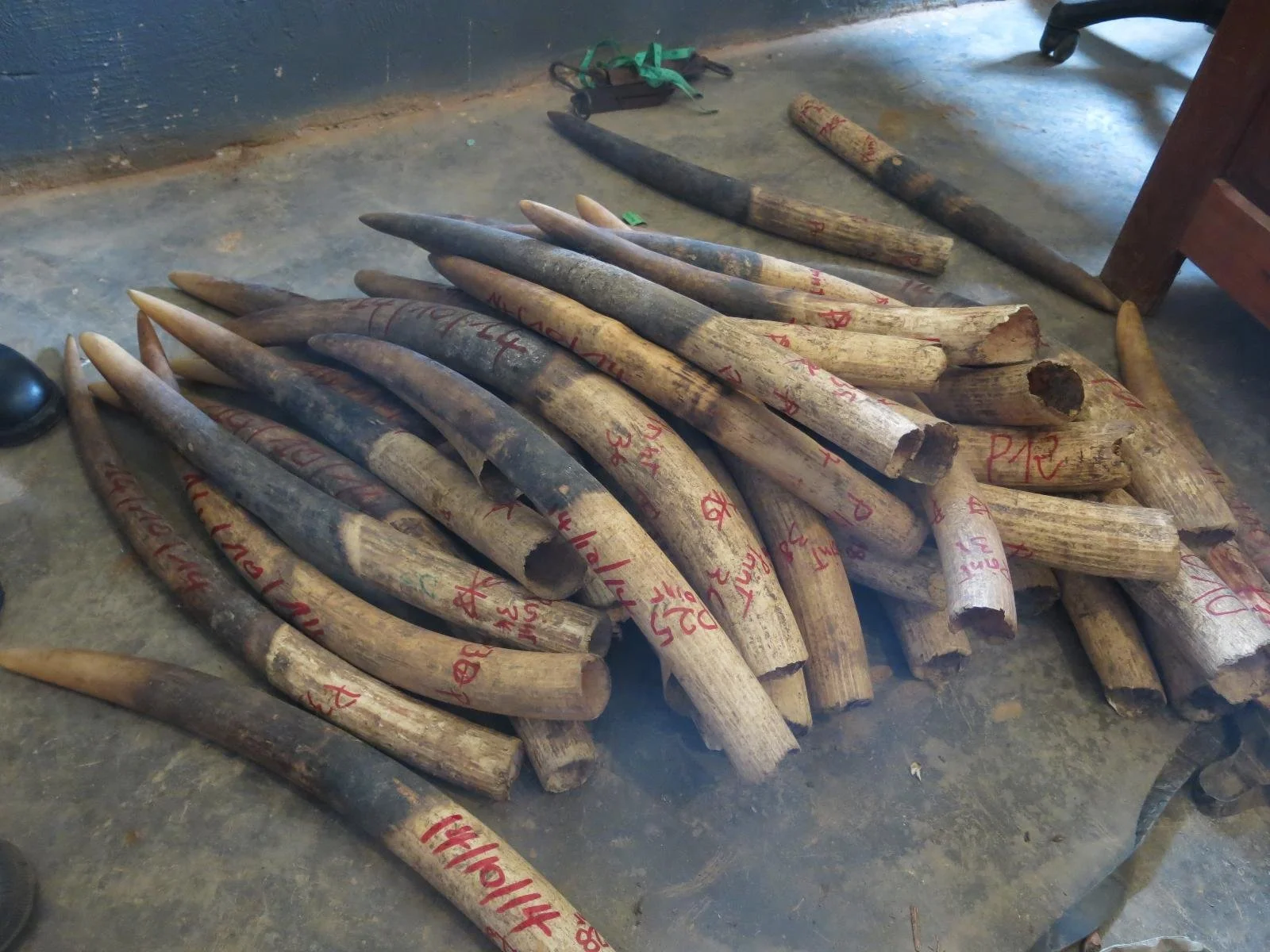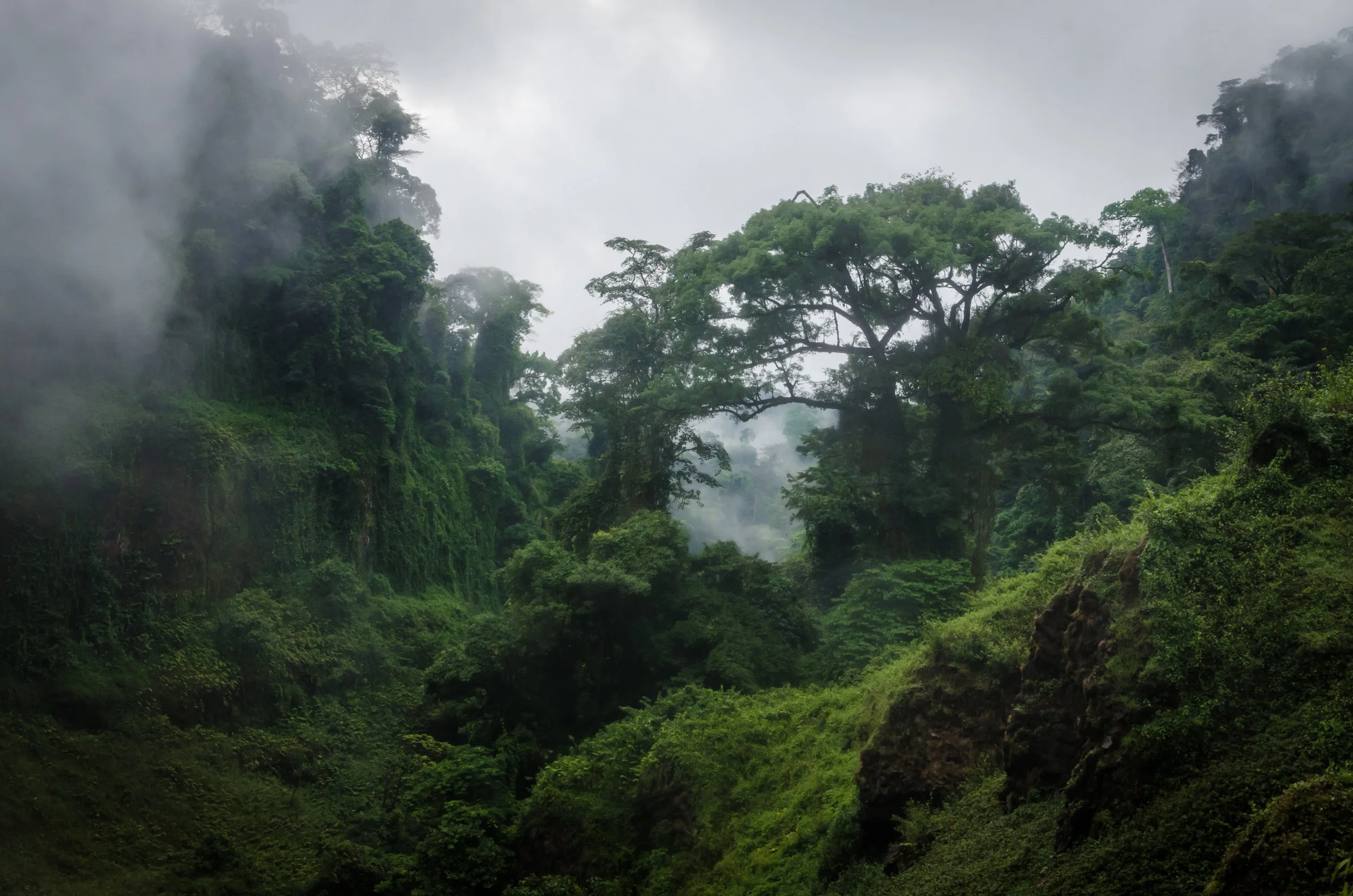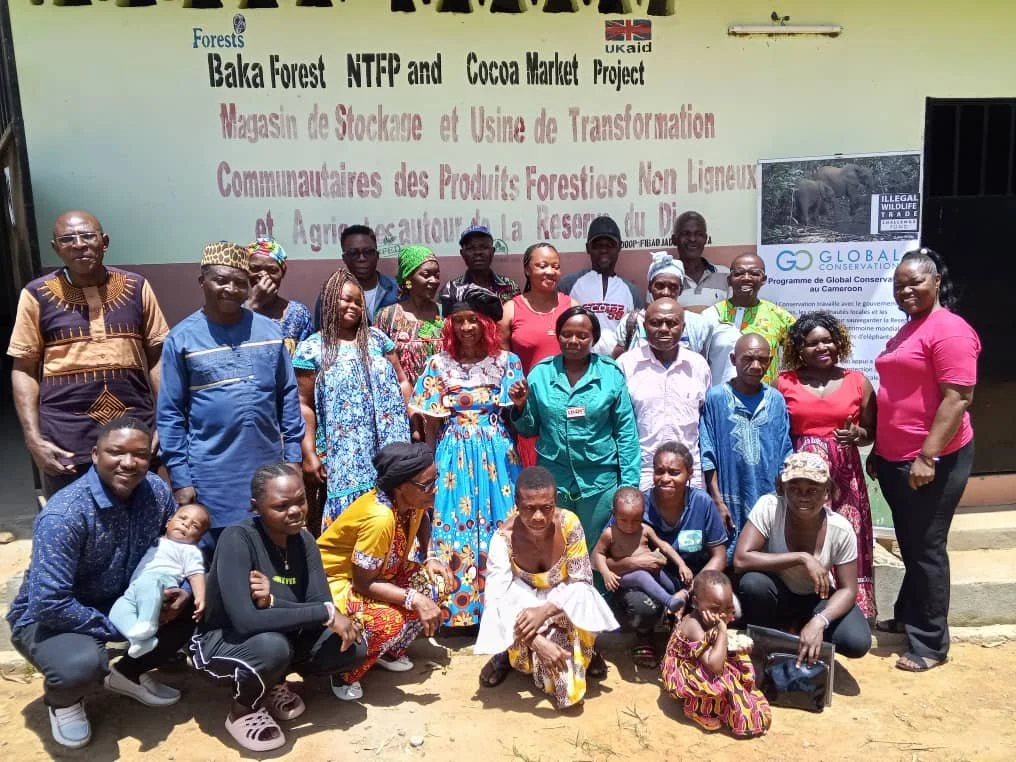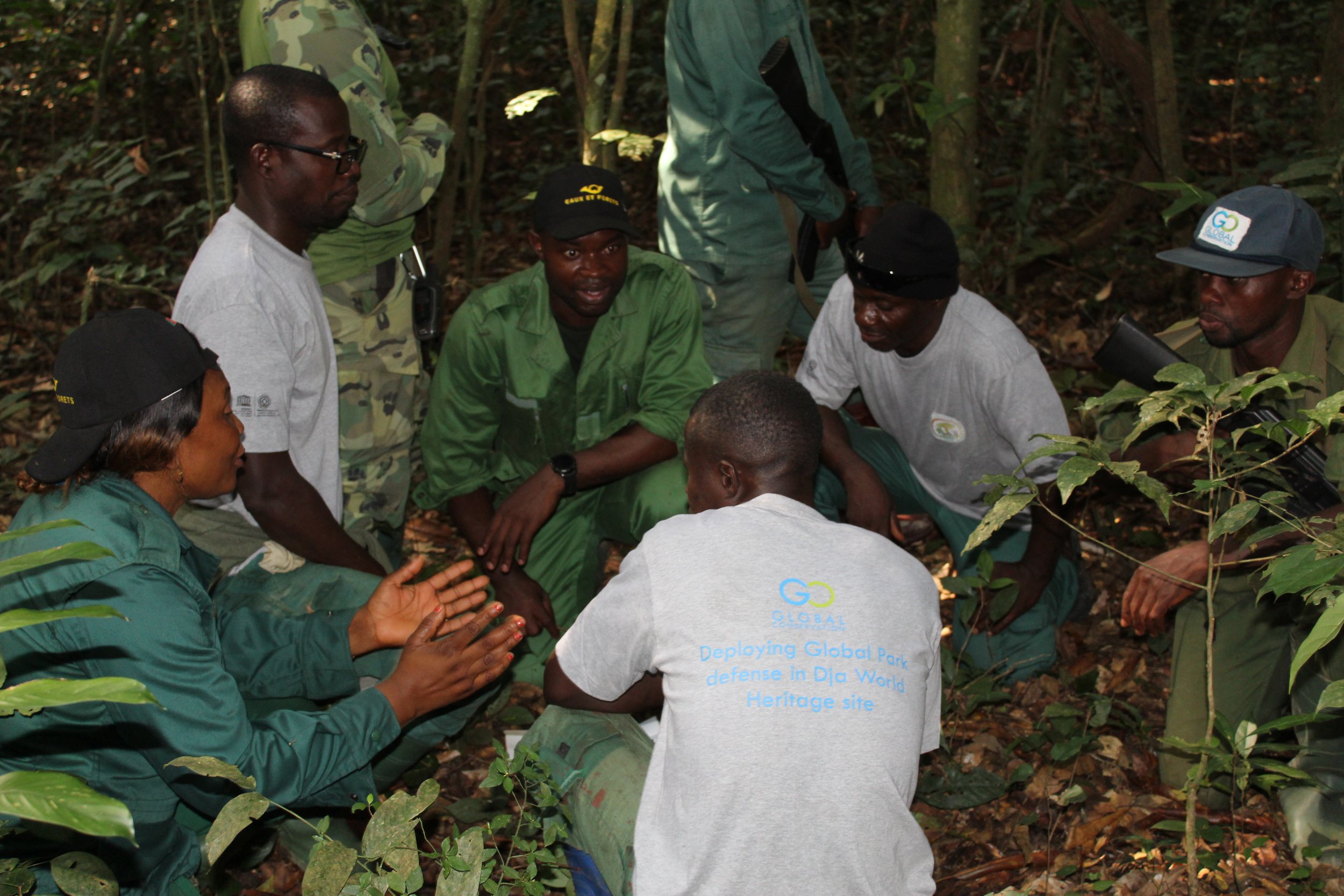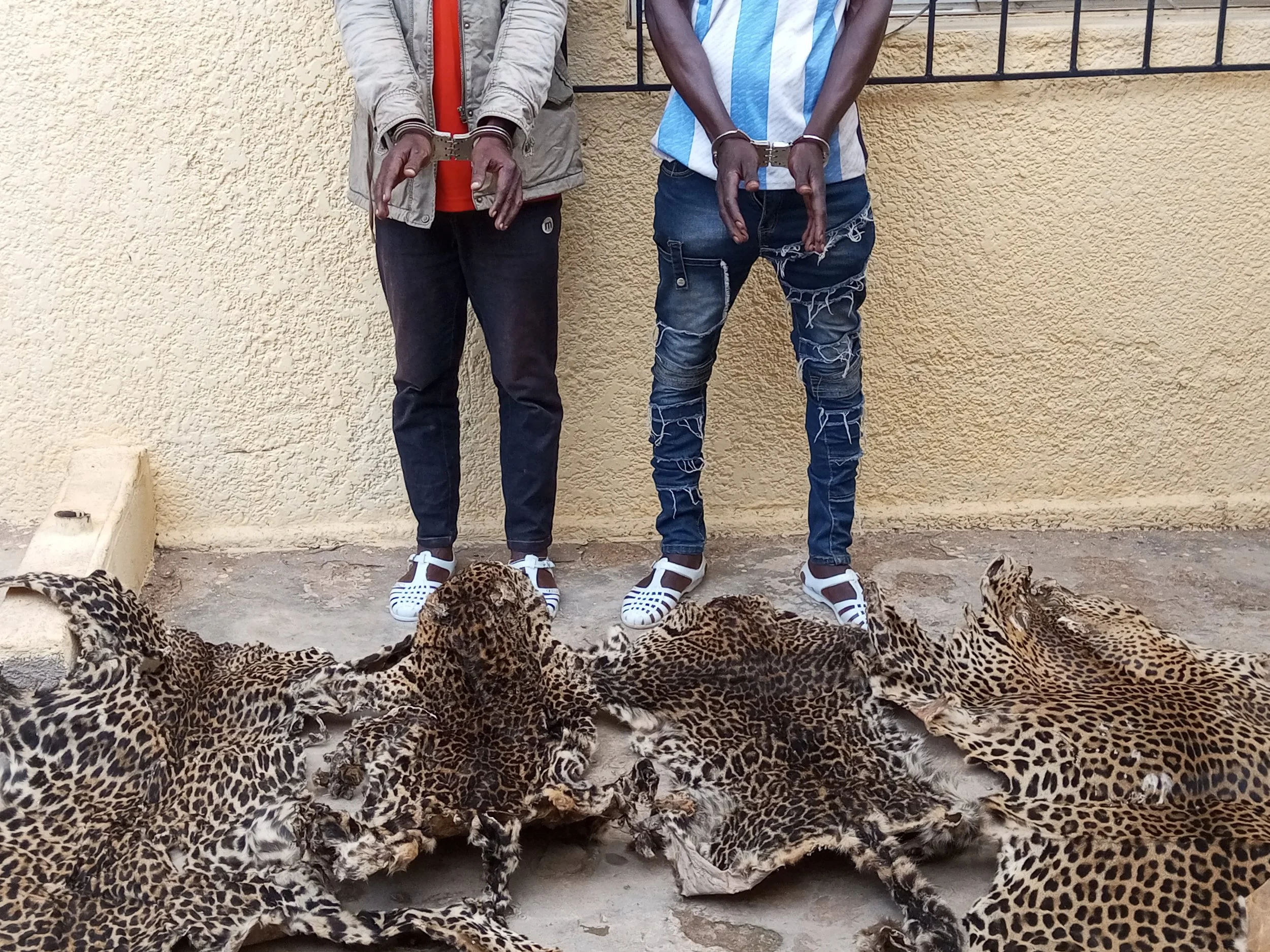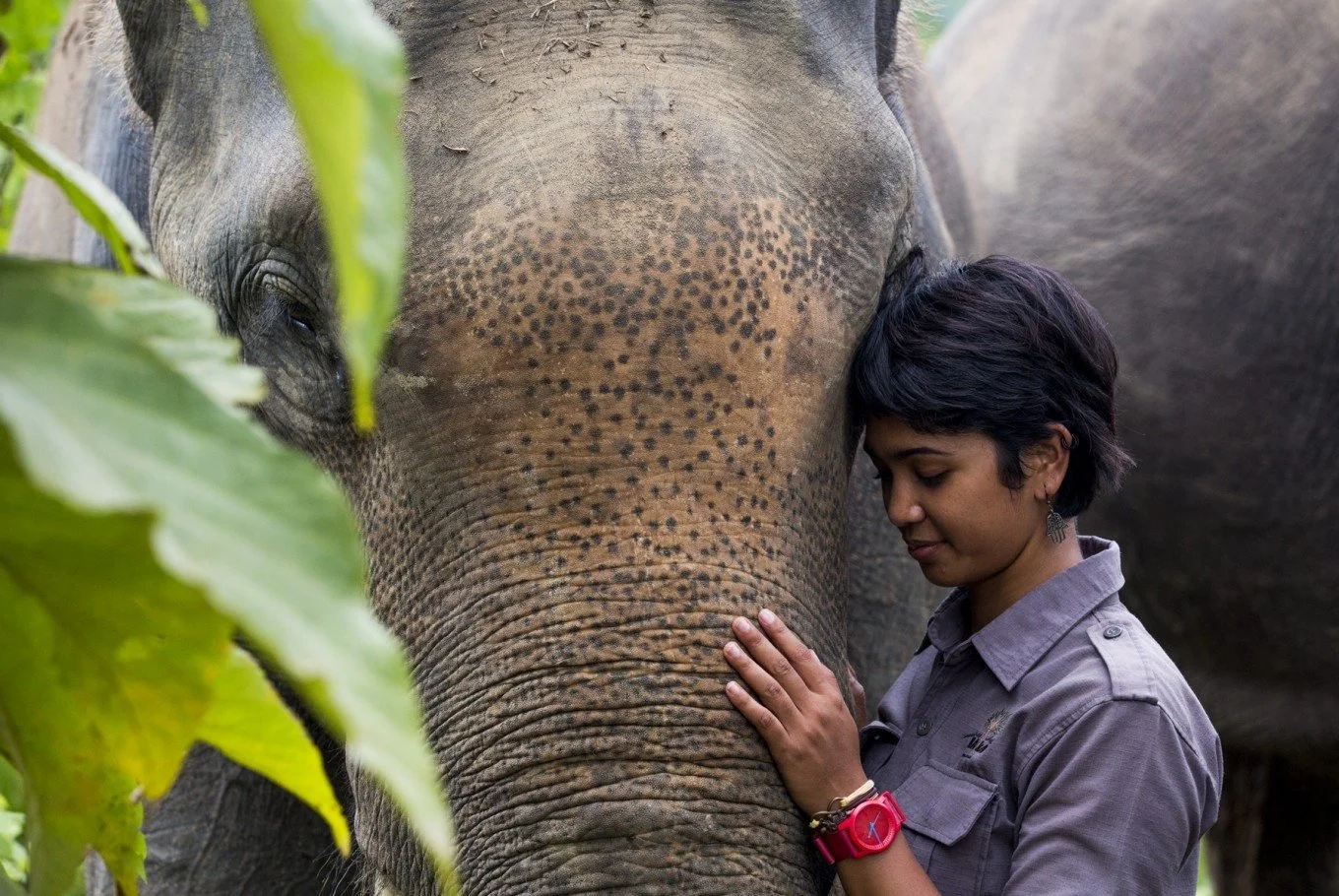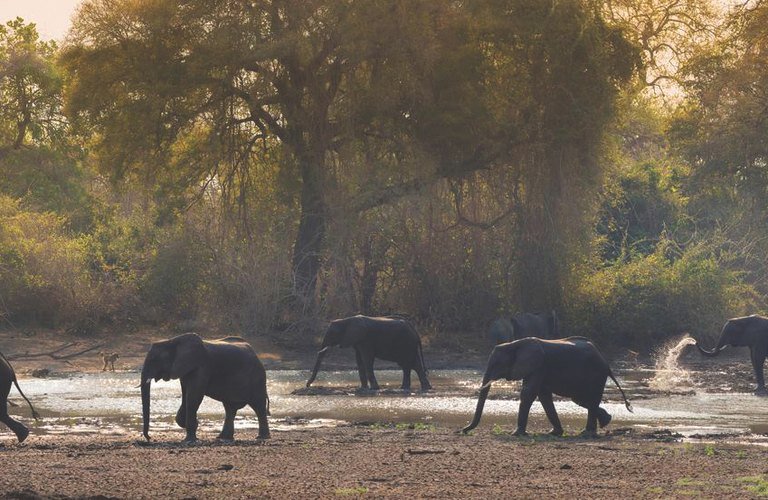Protecting the Dja Rainforest Complex Forest Elephants and Great Apes
Global Conservation (GC) is focused on Global Park Defense and Community Protection to help conserve the last African Forest Elephants and Great Apes in Cameroon's Dja Rainforest Complex.
In 2024, GC received approximately $1.2 million in program support from the UK Defra International Wildlife Trafficking (IWT) and European Union (EU) Nature+ programs, which leveraged GC support with nearly 4:1 matching funding.
The Dja Rainforest Complex protects about 2 million hectares of largely intact tropical rainforests, including Cameroon's last known populations of African Forest Elephants and Great Apes. Global Conservation's preservation strategy for the Dja Rainforest Complex, which includes the Dja Faunal Reserve (DFR), Nki and Ngoryla National Parks in Cameroon, and Minkebe National Park in Gabon, incorporates community forests and logging concessions within the landscape conservation approach.
Protecting the Dja Rainforest Complex from professional elephant poaching syndicates is critical to the survival of Africa's only remaining forest elephant populations. Satellite trail camera surveillance networks, paired with Rapid Response teams, will be utilized to safeguard national parks and community forest concessions against professional poachers.
By conserving Cameroon's key national parks and forestry concessions, we will also be defending against poachers who cross from Cameroon into Gabon. Cameroon has already lost 95% of its African Forest Elephants, leaving less than 2,000 to survive in the deep intact woods where we study, alongside the last big apes (gorillas and chimps) and other vital species.
Djoum-based poaching syndicates in Cameroon carry out frequent elephant poaching trips into Gabon, killing thousands of African Forest Elephants each year. Over 216 ivory tusks were recently confiscated in Djoum in a military vehicle, and Colonel Ango Ango was jailed, as well as his family's travel prohibition to the United States and Europe.
GC Cameroon has been conserving the Dja-Ngoyla-Nki-Minkebe Landscape (DNNM) since 2021 and is one of the Dja Forest Complex's only active non-governmental organizations (NGOs). GC Cameroon, led by Oliver Fankem, GC Director of Central, has obtained significant financing from the EU and the UK Defra for forest and wildlife preservation, totaling approximately 2 million hectares of protected area and forestry.
GC Cameroon works directly with National Park Rangers and Community Ecoguards to deliver Global Park Defense and Community Protection, which includes SMART Patrolling, Trailcam Surveillance, Satellite Monitoring, Area-wide Communications, Rapid Response Teams, and Community Involvement.
Combining SMART and EarthRanger protection systems, as well as deploying next-generation satellite trail cameras along all elephant poacher paths, will allow for speedy interdiction of unlawful invasions into Gabon and Cameroon forests—before they kill.
We are improving park and wildlife protection systems in Dja Faunal Reserve, Ngoryla and Nki National Parks in Cameroon, and Minkebe National Park in Gabon, as well as scaling Community Protection around the park's southeast and delivering training and equipment to provide real protection across a massive area of deep forests and jungles home to elephants, great apes, and many other endangered species.
In 2024-25, Global Conservation facilitated almost 15,000 kilometers of ranger patrolling, including multiple interdictions, confiscations, and seizures, while also significantly enhancing National Park Ranger and Community Ecoguard morale.
Without the regular presence and active surveillance of Park Rangers and Community Ecoguards, national parks will be gradually destroyed, denuded, and depleted of their remaining animals for sale as parts, ivory, or meat.
Progress in 2024–25
In the last two years, GC has strengthened three national park protection activities.
Over 15,000 kilometers were patrolled, largely on foot, with long-range vehicle patrols.
Dozens of interdictions and seizures of bushmeat, ammunition cartridges, motorcycles, firearms, and chainsaws.
The Lomie and Ngoryla National Park Command Centers have been newly renovated and now include internet, solar, and generators, as well as dorms for 20 rangers.
We have deployed 16 networks of 20-30 Trail Cameras in Dja-Nki-Ngoryla, which have resulted in reliable biodiversity estimations and patrol targeting for the prevention of poaching.
Thanks to GC donors, the government, foundations, and families, Cameroon now has a strong protection model for all its protected areas. Our work will now focus on assisting Gabon's Minkebe National Park in stopping elephant poaching by Cameroonian syndicates that are entering Gabon, where the last forest elephants are struggling to survive.
GC Cameroon has been working for the past three years to strengthen national park patrols in Southeast Cameroon across nearly one million hectares, supporting SMART patrolling, equipment, training, and community ecoguards to reduce illegal wildlife poaching, particularly of Class A wildlife such as elephants, gorillas, chimps, and pangolins, which face ten-fold penalties and stiff prison sentences under a new Cameroon Wildlife Law.
Professional poachers and game meat hunters are less likely to assault national parks if constant patrolling and presence are reinforced and MINFOR Rangers and Community Ecoguards are supported. This is because of the high penalties and confiscation of motorcycles and weapons, as well as the risk of jail time and fines, particularly for Class A wildlife.
Global Conservation is building a new Command Center to support patrolling in both Ngoyla Faunal Reserve and Nki National Park, as well as expanding animal monitoring and protection through two huge forest concessions totaling approximately 1.2 million hectares.
Frontline Ranger Training at Dja and Ngoyla Reserves
Rangers from the Dja and Ngoyla Reserves received comprehensive five-day training at Lomie. These seminars aimed to improve the operational and strategic capacities of frontline workers working in anti-poaching and animal conservation initiatives.
This advanced training covered key aspects, including:
Human Rights Protection
Current regional and worldwide trends in illegal wildlife trade.
Intelligence collection, analysis, and dissemination
Planning patrols and ensuring safety in the field
De-escalating conflicts and conducting suspect searches
Crime scene management and basic first aid.
Proper use of field notebooks and documentation strategies.

